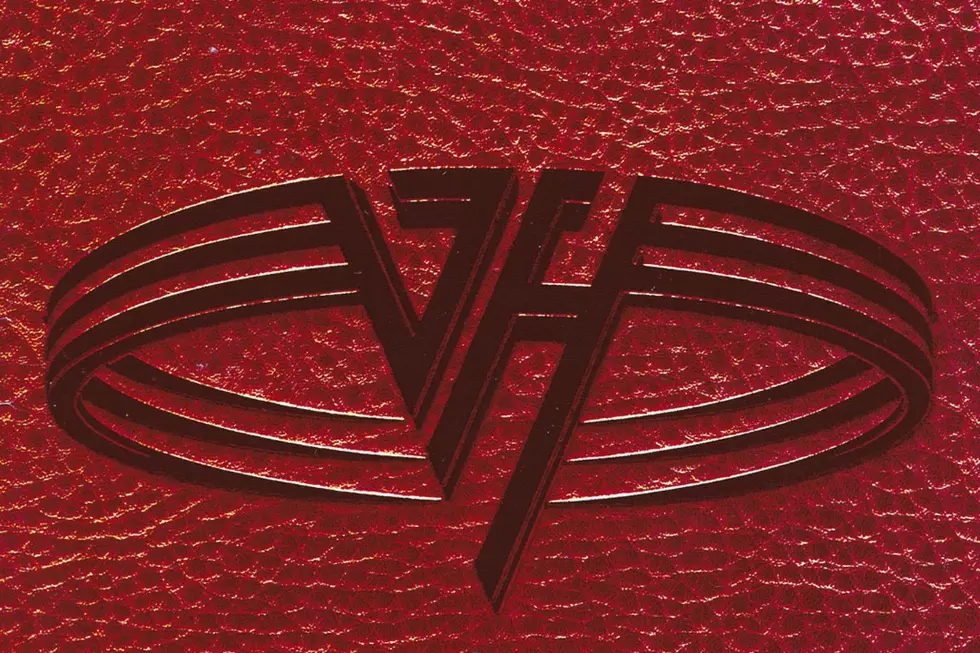
How Van Halen Reached Back on ‘For Unlawful Carnal Knowledge’
Van Halen's first two albums with Sammy Hagar as lead singer shot to No. 1 — and on June 18, 1991, they made it three for three with For Unlawful Carnal Knowledge.
The album, Van Halen's ninth studio effort, arrived three years after the chart-topping, multi-platinum OU812 — which continued the No. 1 tradition established by 1986's 5150. The group's '80s records buffed out their hard rock sound with radio-friendly synths and keyboards, but for Carnal Knowledge, they tinkered with the pop formula.
When the group set up camp in Eddie Van Halen's home studio in the spring of 1990, they made a conscious decision to toss out the synths and get back to their roots, cutting a more back-to-basics record than they'd given fans over the previous decade. To help make it happen, they enlisted the aid of veteran producer Andy Johns, whose credits included classic albums by Led Zeppelin, the Rolling Stones and Free.
With Johns behind the board, Van Halen captured a cleaner, more aggressive sound than they'd previously produced at Eddie's 5150 studio. While the band's albums were never without muscle, 5150 and OU812 were guilty of occasionally muddy sonics, and Johns gave the Carnal Knowledge tracks a lot more bite. As Johns later explained, that was absolutely part of the record's mission statement — particularly on the part of drummer Alex Van Halen.
"I think Alex mainly...Alex really wanted...He always wanted to sound like Bonzo," Johns suggested. "And I remember the first time he plays me this one fill of 'Stairway to Heaven,' he goes, 'Make my snare sound like that.' I said well, you know, 'Yeah right! Sure, no problem.' So we went from there and it took a very long time."
That isn't an overstatement. Van Halen tracked For Unlawful Carnal Knowledge for over a year, not wrapping the sessions until April 1991 — just two months before the album arrived in stores. That type of deliberate pace wasn't uncommon among the major acts of the era, but for an album that should have needed less production and fewer overdubs, it was at least a little perplexing. According to Hagar, the group's creative crawl was partly on purpose — although it did signal the start of a troubling lack of focus.
Watch Van Halen's 'Right Now' Video
"We wanted to make the definitive Van Halen record and we were getting along pretty good then. But I'll straight up say it – the only problem with that record was that we were a little bit lazy," Hagar told Melodic Rock.
"We had so much success and we were having such a good time," Hagar added. "Fucking Eddie and I were out buying new cars every day and racing them down Pacific Coast Highway, you know, having a good time and not wanting to go into the studio and work as much. So, the reason that record took so long was mainly because of that, but it was a great record in the end."
In the end, Van Halen ended up with nearly an hour of music — and a set of songs that ran the gamut from obvious radio anthems like "Poundcake," "Top of the World," and "The Dream Is Over" to squalling slabs of noise like "Pleasure Dome" and "In 'n' Out" (both of which clocked in at over six minutes). In all, the Carnal Knowledge album ultimately sold more than three million copies, won a Grammy, and sent seven singles to pop and rock radio — including arguably the defining single of Hagar's tenure with the group, "Right Now."
"I kept singing it every day to Eddie. It was my baby. And he goes, 'Cool, cool.' He never wrote music to my lyrics. He wasn’t ignoring me; he just didn’t have anything that he thought fit," Hagar told the A.V. Club. "The whole time he was playing that piano part, and I’m going, 'I just don’t hear it.' We were almost finished with the record, and I am playing pinball and he’s playing the piano, and all of a sudden I’m singing 'Right Now' in my head, and it goes with the damn piano part. Those are the magical songwriting moments, when you have a partner that clicks like that. That’s a dream come true, man. It wasn’t even work."
Still, behind the scenes, "work" was becoming more and more necessary to make Van Halen operate. Eddie would later claim Hagar refused to work with Johns, insisting he record his vocals with longtime producer Ted Templeman (who ultimately earned a co-production credit), and the Carnal Knowledge era was pockmarked with fights like the tug of war Hagar had with the label over the video for "Right Now," which he initially refused to film.
That internal discord still threw enough sparks to make it worth the bother with For Unlawful Carnal Knowledge, and the band's chemistry carried it through a two-year period of almost constant touring after its release. Hagar's tenure would come to a rocky halt after one more studio album, but for the moment, they remained one of the biggest rock bands on the planet — and more popular than ever.
The Best Song on Every Van Halen Album
See Rock’s Epic Fails: Van Halen Edition
More From 96.5 The Walleye









